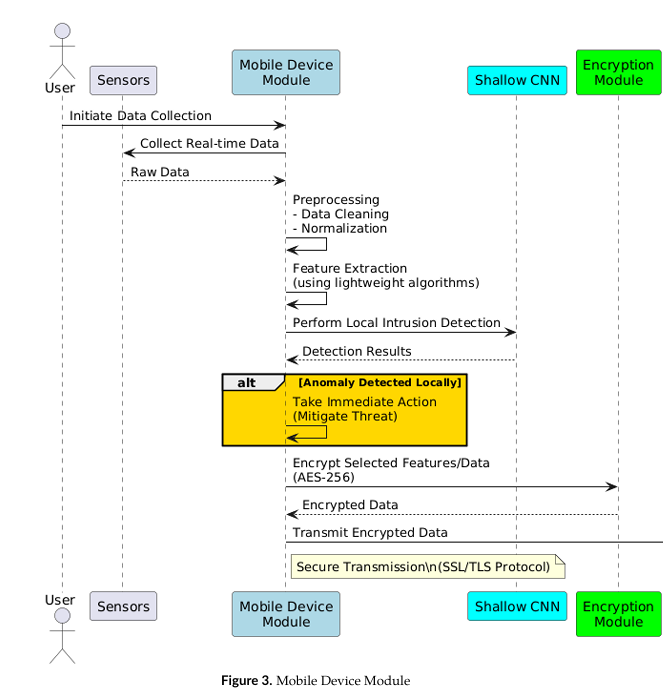AHybrid Deep Learning Framework Combining On-Device and Cloud-Based Processing for Cybersecurity in Mobile Cloud Environments
Main Article Content
Abstract
Mobile cloud computing (MCC) combines cloud resources with mobile devices to enhance computational power and provide widespread access to data and services. This integration increases cybersecurity challenges due to a larger attack surface and the limited processing power and battery life of mobile devices. Traditional security measures often fail to address the changing threats in MCC environments, struggling to balance security needs with device performance and user privacy. This paper proposes a novel and hybrid deep learning framework designed to detect and prevent cyber-attacks in mobile cloud environments effectively. With combining on-device and cloud-based processing, the framework uses the strengths of both environments to optimize performance and security. On mobile devices, lightweight convolutional neural networks (CNNs) are employed for preliminary intrusion detection and feature extraction, allowing for immediate response to threats while minimizing resource consumption and preserving user privacy by keeping sensitive data local. In the cloud, more complex long short-term memory (LSTM) networks perform analysis on encrypted data received from devices, utilizing the cloud's substantial computational power to detect sophisticated attack patterns that are beyond the capabilities of mobile devices.
The system architecture includes secure communication protocols, such as SSL/TLS, and robust encryption methods like AES-256 and RSA-2048 to ensure the confidentiality and integrity of data transmitted between mobile devices and the cloud server. The framework also incorporates adaptive learning mechanisms, model compression techniques, and privacy preservation strategies like differential privacy and data minimization to improve security without compromising performance or user privacy. Through distributing computational tasks and employing advanced deep learning models, the proposed framework addresses the limitations of existing solutions, offering a scalable, efficient, and secure method for intrusion detection in MCC environments. This approach not only improves detection accuracy and resource optimization but also paves the way for future advancements in mobile cybersecurity, such as the integration of federated learning and cross-platform compatibility.
